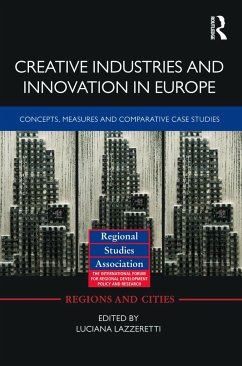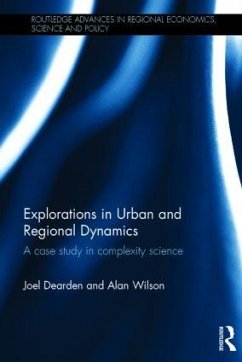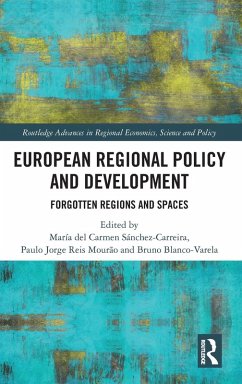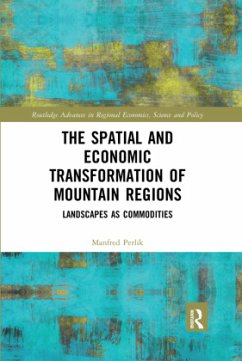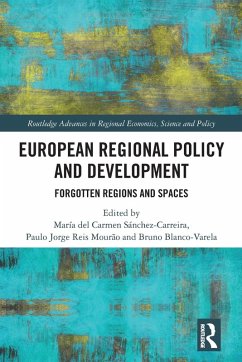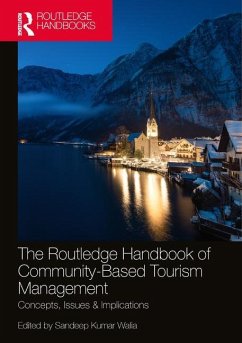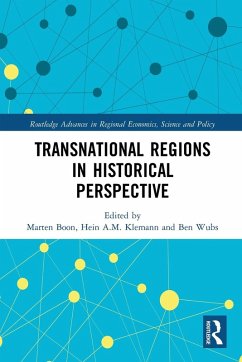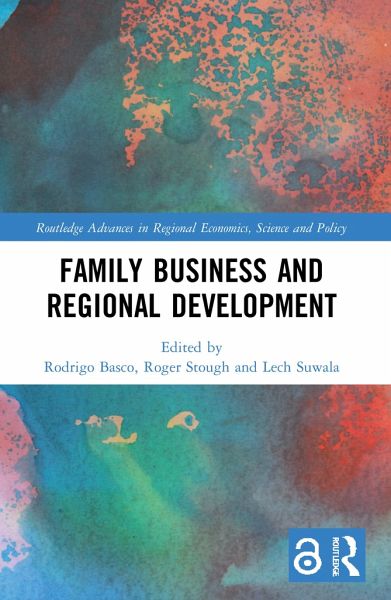
Family Business and Regional Development
Versandkostenfrei!
Versandfertig in 6-10 Tagen
43,99 €
inkl. MwSt.
Weitere Ausgaben:

PAYBACK Punkte
22 °P sammeln!
This book explores the relationship between families, firms, and regions and the extent to which these relationships contribute to regional economic and social development.Although family business participation in economic activities has been a common phenomenon since pre-industrial societies, and its importance has evolved throughout time and across spatial contexts, the book suggests that these factors have often been neglected in family business and regional studies. Taking this research gap into account, the book aims to deepen our understanding of the role family firms play in the regiona...
This book explores the relationship between families, firms, and regions and the extent to which these relationships contribute to regional economic and social development.
Although family business participation in economic activities has been a common phenomenon since pre-industrial societies, and its importance has evolved throughout time and across spatial contexts, the book suggests that these factors have often been neglected in family business and regional studies. Taking this research gap into account, the book aims to deepen our understanding of the role family firms play in the regional economy. In particular, it explores two seldom studied questions. Firstly, what role do family firms play in regional development? Secondly, how do different spatial regional contexts shape family firm operations and performance?
Family Business and Regional Development presents a model of "spatial familiness" and uses themes such as productivity, networks and competitiveness to shed new light on family businesses. Moreover, it approaches the juxtaposition between family business and regional studies to encourage the cross-fertilisation of ideas, theories, and research methods between the two fields.
Bringing together leading experts in entrepreneurship, regional economics, and economic geography, this book will be a valuable reading for advanced students, researchers and policymakers interested in family firms, regional studies and economic geography.
Although family business participation in economic activities has been a common phenomenon since pre-industrial societies, and its importance has evolved throughout time and across spatial contexts, the book suggests that these factors have often been neglected in family business and regional studies. Taking this research gap into account, the book aims to deepen our understanding of the role family firms play in the regional economy. In particular, it explores two seldom studied questions. Firstly, what role do family firms play in regional development? Secondly, how do different spatial regional contexts shape family firm operations and performance?
Family Business and Regional Development presents a model of "spatial familiness" and uses themes such as productivity, networks and competitiveness to shed new light on family businesses. Moreover, it approaches the juxtaposition between family business and regional studies to encourage the cross-fertilisation of ideas, theories, and research methods between the two fields.
Bringing together leading experts in entrepreneurship, regional economics, and economic geography, this book will be a valuable reading for advanced students, researchers and policymakers interested in family firms, regional studies and economic geography.






